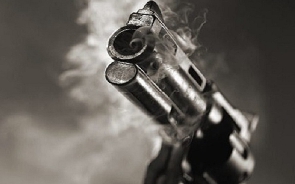By Kwame Okoampa-Ahoofe, Jr., Ph.D.
The president of Ghana’s National Association of Graduate Teachers’ assertion that the quality of education in Ghana does not lie in merely extending the duration of courses, has some inescapable truth and validity. Nonetheless, it is equally true that good-quality education is inevitably predicated on the adequacy of the length of time accorded instructors and students in both imparting and imbibing curricular requirements in order to, respectively, perform satisfactorily pedagogically and academically.
Those of us who experienced the old, British-oriented 5-year system and the latter’s 2-year preparatory Advanced Level (“A”-Level) regime can readily and proudly attest to the superior quality of our academic and professional preparation, relative to our American counterparts. In fact, more than several of us can on any given day regale willing listeners with humorous tales of working two menial jobs and incessantly and uncontrollably snoozing through most of our classes, in both public and private universities and colleges, here in the United States, and yet routinely earning the highest grades in most of our courses.
The foregoing, however, is in no way to glorify Ghana’s old system of 17 marathon years of pre-university education. To be certain, the old system was almost a total waste of time and our precious intellectual resources. Still, in an environment of infrastructural and textual, as well as instructional dearth, those apparently redundant years enabled those of us who were self-motivated and determined to succeed mobilize our scanty human and material resources to the same end.
In Ghana, the situation has gotten progressively worse, which means that with the superficial trimming of several years off the traditional 17 years – and here, of course, one ought to bear in mind that quite a remarkable percentage of students even in those days did not log up all 17 years in order to successfully negotiate our country’s treacherous academic terrain – the quality of national education, across the board, has significantly depreciated. Consequently, one cannot but readily agree with Mr. Kwame Alorvi, the president of NAGRAT, that what we need to be seriously and vigorously debating are effective means of making our educational system competitive as any of its kind around the developing world, at the very least, if not readily comparable to those of such advanced, post-industrial economies as the United States, South Korea, Canada, Australia and Britain.
Needless to say, to achieve the foregoing would necessitate generous funding for such sectors of national endeavor as agriculture, health, transportation and, of course, education; for it goes without saying that the preceding sectors, together, constitute the backbone of any viable or efficiently functioning society.
We, however, seriously beg to differ with Mr. Alorvi, the National Association of Graduate Teachers’ (NAGRAT) president, regarding his rather lame argument that “there is no reason to subject Ghanaian school children to four years [of] Senior High School [education] when Liberia and Sierra Leone, among other members of the West African Examinations Council (WAEC) are taking the same program [sic] for three years” (See “ ‘Four-Year SHS: Are Ghanaian Children Less Intelligent?’” MyJoyOnline.com 5/30/09).
On the latter score, we are forced to offer the same riposte that the immortalized Dr. J. B. Danquah, the putative Doyen of Gold Coast and Ghanaian politics, would have proffered, confronted with the NAGRAT president’s query. And our terse riposte, of course, is that: “Ghana is neither Liberia nor Sierra Leone; neither is Ghana The Gambia nor Nigeria.” In other words, while we share the same sub-region and membership of the Economic Community of West African States (ECOWAS), each of the foregoing listed nations has its own unique and discrete national character and way of doing things.
On another level, though, it would have been more meaningful for Mr. Alorvi to have offered relevant statistical evidence, as well as analysis of the extent to which students in these neighboring countries with 3-year senior high school systems have been successful at either their pre-university or post-secondary exit examinations, compared to Ghanaian students who have experienced/undertaken the same curriculum in 4 years. I bet Mr. Alorvi, were he privy to the preceding data, would be far less vocal and more modest in his outcry.
I don’t have the preceding data either, though I can confidently assert, based on the teaching experiences of Ghanaians who served in Nigeria and Sierra Leone, as well as other Anglophone African countries during the 1980s, that the quality of university, and other tertiary, education in countries that accepted the Ordinary Level (“O”-Level) as the basic entry requirement, was significantly lower than that of Ghana’s.
Then also, the likes of Mr. Alorvi must not be so readily fooled by the fact of Sierra Leone and Liberia having recently emerged from an apocalyptic state of civil strife as a salient mark of either the lack of academic preparedness or psychological readiness for the sort of curricular fare demanded by the senior high school system. To be certain, it has been known for quite sometime that having endured a brutal state of war and/or “organized chaos” may, in fact, ironically equip the victim – or subject of such brutality – with the sort of disciplinary motivation required to readily succeed in a peacetime environment, even in the face of grinding poverty and acute dearth of infrastructure. After all, did not the Ghana Black Stars get trounced by the Rwandan national team at a time that most soccer fans facilely assumed that it was going to be just another walkover by the “Nkrumah Boys”? On the other hand, it is the kind of implicit complacency on the part of a largely placid and stable Ghanaian society and populace that makes for an unlikely but all-too-familiar recipe for failure.
Also, if he had cared to peek across the board, as it were, Mr. Alorvi would have readily noticed that village schools like his own, wherever that may be located, such as my own Akyem-Asiakwa Presbyterian Secondary School, have performed remarkably from year to year against practical odds which may only be mentally perceived by graduates of such old and big-name schools as Mfantsipim, Wesley Girls’, Prempeh College, Holy Child and Achimota. The stark fact is that just as Rome was, proverbially, not built within twenty-four hours, the PTAs that Mr. Alorvi claims to be significantly behind the continued success of the Adisadels and Perscos of today were created over time and a lot of sweat.
I did not learn of what Ms. Elizabeth Ohene had to say on Joy-Fm’s “Front Page” program, but I have to unreservedly concur with the former Tertiary Education minister that there is something quixotic about Mr. Alorvi’s insistent call for the reversion of our senior high school curriculum from the current 4-year system to a 3-year one, almost as if the current dearth of funding would, somehow, be meliorated by such patently gratuitous curricular abbreviation.
At any rate, it was Dr. George Oduro, director of the Institute for Educational Planning and Administration at the University of Cape Coast, who scored the proverbial homerun, in baseball parlance. Our politicians may, indeed, be far less intelligent than their neighboring counterparts. To this effect, Dr. Oduro opines: “We do not have the reserves [cry our politicians when] we [talk] about cost. We cannot prepare our head-teachers because [the politicians] say there is no money; we cannot support our teachers to develop quality [education] because [the politicians] say there is no money; we cannot ensure that [the]syllabus to support [our] four-year [educational system] come [in time] before the project starts [because the politicians claim] there is no money; and yet we are prepared to spend money on an extra year. I, really, think that the politicians are not helping education in the country.”
*Kwame Okoampa-Ahoofe, Jr., Ph.D., is Associate Professor of English, Journalism and Creative Writing at Nassau Community College of the State University of New York, Garden City. He is the author of “Ghanaian Politics Today” (Atumpan Publications/Lulu.com, 2008). E-mail: okoampaahoofe@aol.com. ###
Opinions of Saturday, 6 June 2009
Columnist: Okoampa-Ahoofe, Kwame
What if Ghanaian Politicians are less intelligent than their Neighbors?
Opinions













